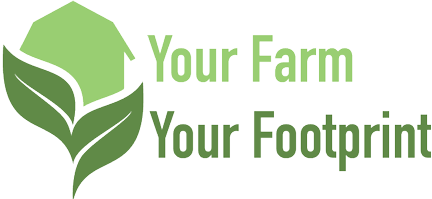PDPW Blog
Little things make a big difference
Posted November 5, 2018
Milk prices continue to challenge the operating costs of dairy farms. Sometimes wise economic and management decisions become lost in all the activities. It's important for key family members and employees to consistently gather in team meetings to discuss how each person can do their work a little better, to take care of things that are within control.
In effective meetings with the appropriate personnel everyone around the table knows what the check book looks like. They're not ignoring the elephant in the room; they’re just not feeding it. Every positive idea leads to the entire dairy performing better as little as one idea might seem.
Unfortunately during difficult times the first to be neglected is self-care. Whether a person owns the farm, has partial ownership, or is a wage-earning family member or employee, taking care of one’s physical well-being is critical. Especially when stress is great it’s important to eat right and sleep enough. Take a split second to assess safety concerning livestock, equipment and potential gaseous feed- or manure-storage areas. The often-spoken cliché is true. Things can be replaced; people cannot.
Taking care of family is also important. Start by keeping home troubles at home and farm troubles on the farm. Young children may not grasp farm economics; but they can read stressed parents. Kids are only young once. Give each other a much-needed time-out with simple family activities. A picnic under the maple tree in the backyard can be inexpensive and enjoyable. The mind works much better when it has a break from tasks that need to be done. Everyone knows taking care of the cows and young stock is a must. What’s sometimes missed is the value of consistently doing the basic things correctly. Be sure bedding material in the stalls is clean and dry and that most cows are laying down after they’ve eaten. Clean waterers routinely, push up feed regularly, and keep the milking system cleaned and maintained. When those fundamental tasks are kept in check, savings accumulate inboth time and money.
Maintaining somatic cell counts at or less than 100,000 is more important than ever in keeping a good relationship with the milk processor. It’s also better for the cows. Squeezing another one-tenth out of the protein or butterfat content in milk increases the milk check.
Once the feed supply has been inoculated, packed and covered, the next step is to be waste conscious; uncover only as needed and feed it fresh. New or even used equipment may not be in the budget. Preventative maintenance in the fall is far better than crawling under cold steel at 20 degrees below zero in the dead of winter.
One may not want to look at monthly or quarterly income and expense numbers during an extended down cycle. But it’s crucial in those times. Have open team meetings with family and employees who need to know the expenses. Those numbers should be freely discussed to stimulate ideas of how a couple cents can be saved here or a nickel and dime there.
However small it may seem, every few cents per hundred weight still adds to the bottom line. Take the first step of assessing what needs to be done, then follow by responding with the right actions. Remember to lean on those who can help. Every producer needs access to a capable lender, accountant, financial consultant, veterinarian, nutritionist, crop adviser — and the list goes on. In the meantime increasing one’s personal skill set is invaluable. Attend meetings with positive people at helpful programs, such as those the Professional Dairy Producers of Wisconsin conducts. Each of those partners wants to see dairy businesses succeed.
And by the way, they don’t want to feed the elephant either.
In effective meetings with the appropriate personnel everyone around the table knows what the check book looks like. They're not ignoring the elephant in the room; they’re just not feeding it. Every positive idea leads to the entire dairy performing better as little as one idea might seem.
Unfortunately during difficult times the first to be neglected is self-care. Whether a person owns the farm, has partial ownership, or is a wage-earning family member or employee, taking care of one’s physical well-being is critical. Especially when stress is great it’s important to eat right and sleep enough. Take a split second to assess safety concerning livestock, equipment and potential gaseous feed- or manure-storage areas. The often-spoken cliché is true. Things can be replaced; people cannot.
Taking care of family is also important. Start by keeping home troubles at home and farm troubles on the farm. Young children may not grasp farm economics; but they can read stressed parents. Kids are only young once. Give each other a much-needed time-out with simple family activities. A picnic under the maple tree in the backyard can be inexpensive and enjoyable. The mind works much better when it has a break from tasks that need to be done. Everyone knows taking care of the cows and young stock is a must. What’s sometimes missed is the value of consistently doing the basic things correctly. Be sure bedding material in the stalls is clean and dry and that most cows are laying down after they’ve eaten. Clean waterers routinely, push up feed regularly, and keep the milking system cleaned and maintained. When those fundamental tasks are kept in check, savings accumulate inboth time and money.
Maintaining somatic cell counts at or less than 100,000 is more important than ever in keeping a good relationship with the milk processor. It’s also better for the cows. Squeezing another one-tenth out of the protein or butterfat content in milk increases the milk check.
Once the feed supply has been inoculated, packed and covered, the next step is to be waste conscious; uncover only as needed and feed it fresh. New or even used equipment may not be in the budget. Preventative maintenance in the fall is far better than crawling under cold steel at 20 degrees below zero in the dead of winter.
One may not want to look at monthly or quarterly income and expense numbers during an extended down cycle. But it’s crucial in those times. Have open team meetings with family and employees who need to know the expenses. Those numbers should be freely discussed to stimulate ideas of how a couple cents can be saved here or a nickel and dime there.
However small it may seem, every few cents per hundred weight still adds to the bottom line. Take the first step of assessing what needs to be done, then follow by responding with the right actions. Remember to lean on those who can help. Every producer needs access to a capable lender, accountant, financial consultant, veterinarian, nutritionist, crop adviser — and the list goes on. In the meantime increasing one’s personal skill set is invaluable. Attend meetings with positive people at helpful programs, such as those the Professional Dairy Producers of Wisconsin conducts. Each of those partners wants to see dairy businesses succeed.
And by the way, they don’t want to feed the elephant either.






